From Legionnaire to Landowner: Retirement Perks for Roman Soldiers explores how Roman soldiers transitioned from disciplined warriors to respected members of civilian society. Retirement perks played a crucial role in this transformation, providing financial security and social status after years of military service.
Roman soldiers received various benefits that went beyond simple discharge rewards. These included formal pension systems, land grants in newly conquered territories, citizenship rights, and additional bonuses. Such perks ensured veterans could establish livelihoods as landowners and community figures, cementing their loyalty to Rome.
This article delves into key aspects of these retirement rewards:
- Evolution of retirement benefits from informal to structured systems
- Establishment of the Aerarium Militare, Rome’s military treasury
- Land grants and citizenship privileges that empowered retired soldiers
- Extra bonuses and integration into civilian roles
Understanding these elements reveals how Rome honored military service while promoting social stability across its expanding empire.
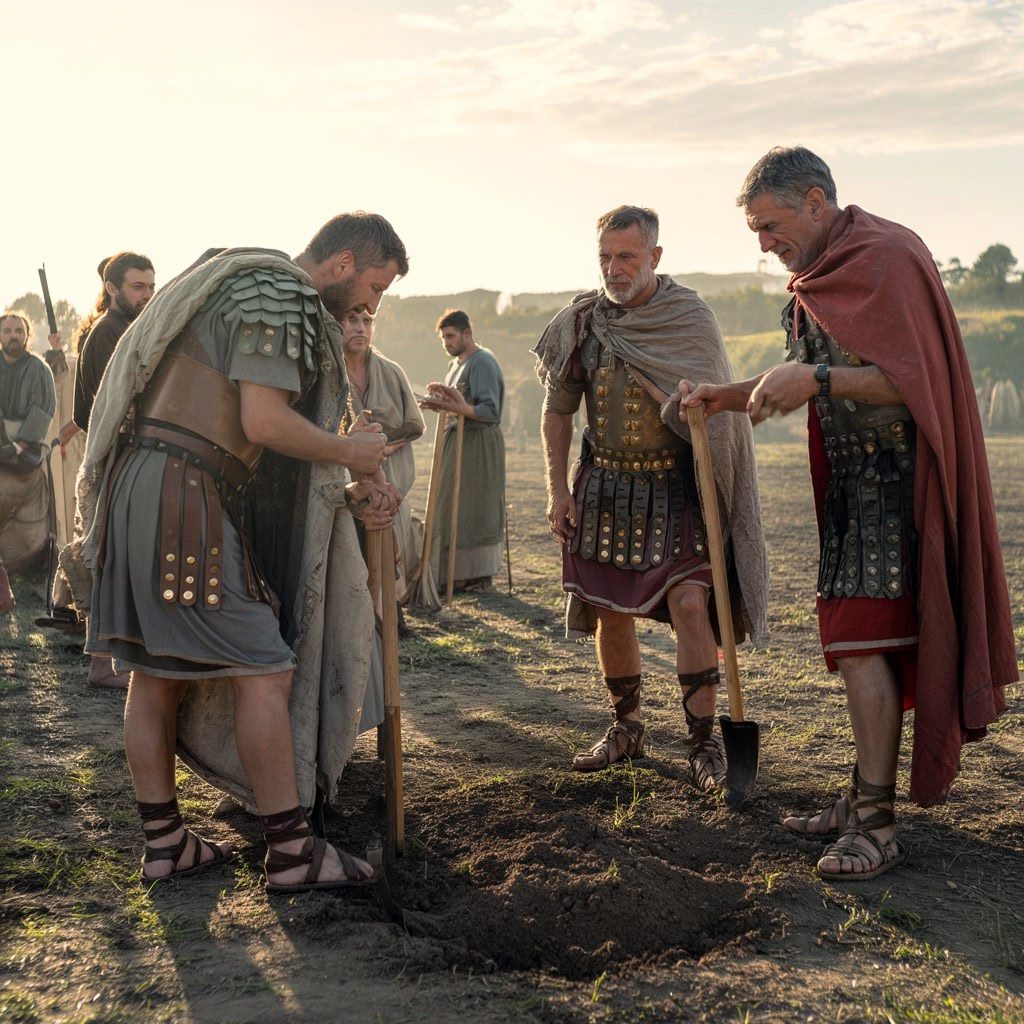
Evolution of Retirement Benefits for Roman Soldiers
The Roman army initially operated with short-term enlistments, often seasonal or tied to specific campaigns. Service was irregular, and soldiers received limited or no formal retirement rewards. This system changed dramatically with the professionalization of the army, a process largely credited to Gaius Marius in 108 BC.
Marius reformed the military recruitment policies by allowing landless citizens to enlist, thus creating a standing army composed of long-serving legionaries rather than temporary conscripts. This shift meant soldiers now committed to extended service terms, typically around 16 to 20 years. With longer service came the need for more structured retirement benefits—soldiers risked their lives for decades and required security after discharge.
His reforms introduced the concept of formalized retirement perks, recognizing the importance of rewarding loyalty and experience. These benefits went beyond simple gratuities or loot shares; they aimed to provide veterans with financial stability and social status upon leaving active duty.
The establishment of these retirement benefits served multiple purposes:
- Encouraged enlistment from broader social classes.
- Ensured veteran loyalty to Rome even after service.
- Facilitated the transition from soldier to civilian life.
This evolution laid the groundwork for later institutionalized pension systems and comprehensive veteran rewards under imperial rule.
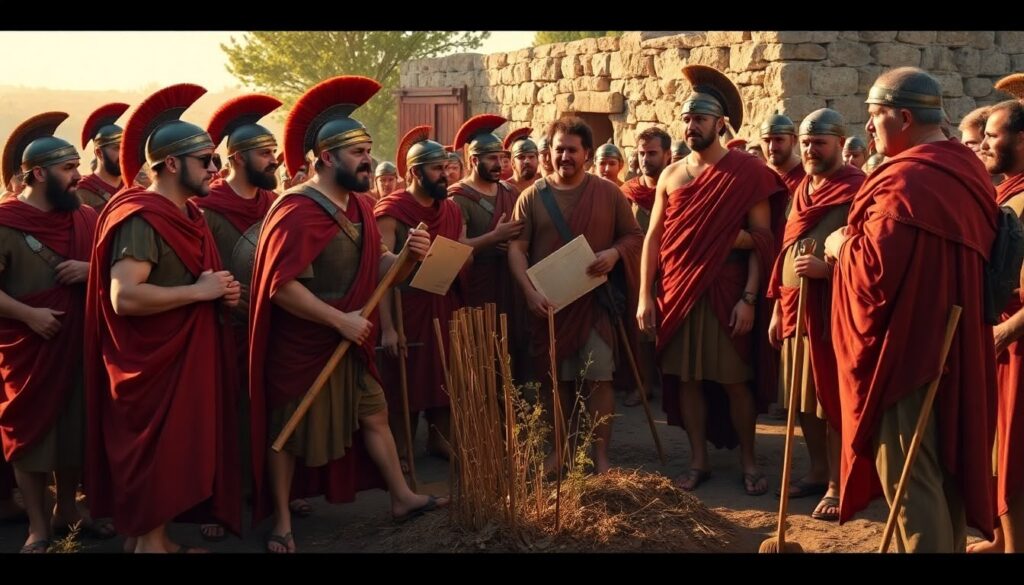
Establishment of Aerarium Militare by Emperor Augustus
Emperor Augustus introduced the Aerarium militare, a formal pension fund specifically designed to support retired Roman soldiers financially. This military treasury marked a significant advancement in how the empire managed the welfare of its veterans, creating a sustainable system funded primarily through inheritance and sales taxes.
The Aerarium militare provided two main types of monetary pensions to veterans:
- Regular payments: Some veterans received ongoing stipends, helping them maintain a stable income after their military careers.
- Lump-sum praemia: Most commonly, soldiers were granted a one-time discharge bonus known as praemia. This sum was substantial—approximately 12,000 sesterces for legionaries—and represented several years’ worth of their salary. Members of elite units like the Praetorian Guard could receive even higher amounts, around 20,000 sesterces.
These pensions reflected the state’s commitment to rewarding long-term service, typically after around 20 years in the army. The establishment of this fund also helped regulate expectations among soldiers and ensured loyalty by providing tangible rewards tied directly to imperial finances rather than relying on ad hoc gifts or loot distribution.
The Aerarium militare became a cornerstone of veteran benefits during Augustus’s reign and influenced how subsequent emperors approached military pensions and retirement policies.
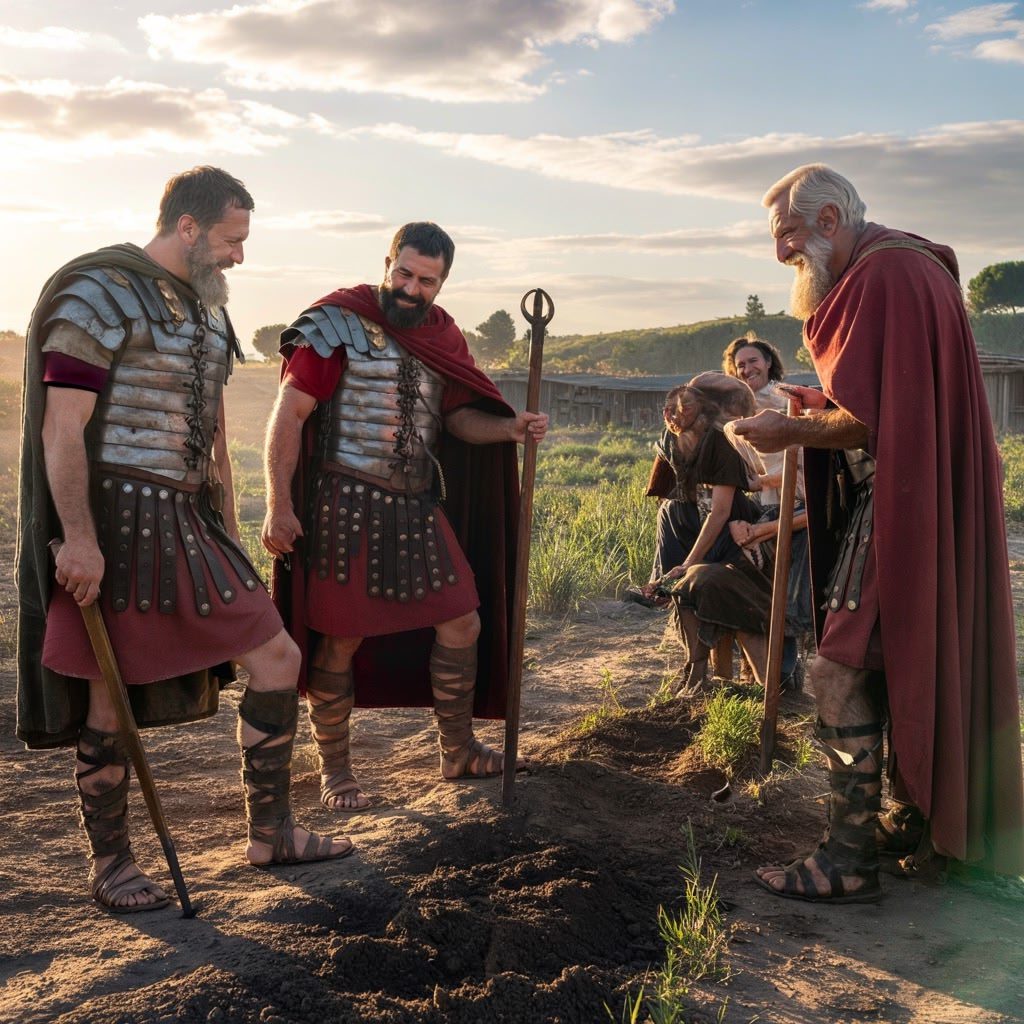
Land Grants and Citizenship Rights for Retired Soldiers
Retired Roman soldiers often received land grants in newly conquered territories as part of their retirement perks. These land allocations served multiple purposes:
- Provided veterans with a reliable means of livelihood after years of military service.
- Helped establish settlements populated by loyal veterans, strengthening Roman presence in frontier regions.
- Facilitated the Romanization process by spreading Roman culture, language, and governance into diverse provinces.
The lands granted were typically located in recently annexed or volatile areas where veteran settlers acted as both cultivators and local defenders. This strategy transformed legionnaires from soldiers into landowners, giving them a direct stake in the stability and prosperity of Rome’s expanding empire.
Alongside land rewards, full Roman citizenship was a critical benefit, especially for auxiliary troops who were non-citizens during their service. Citizenship conferred significant privileges:
- Legal rights and protections under Roman law.
- Eligibility for public office and economic opportunities.
- Extension of these rights to the soldier’s family, ensuring social advancement across generations.
This dual reward system—land ownership combined with citizenship—elevated retired soldiers’ status dramatically. It reinforced their loyalty to Rome while integrating them firmly into civilian society, marking a clear transition from legionnaire to landowner.
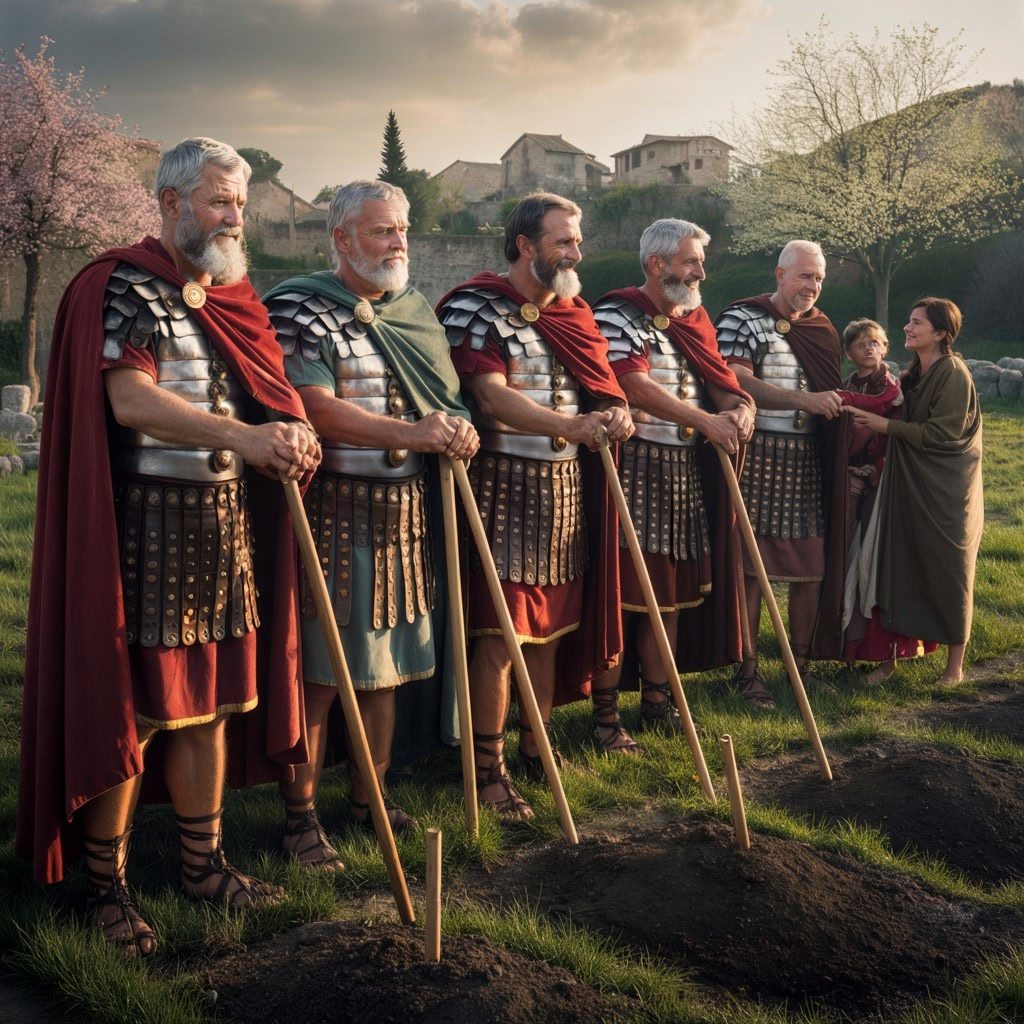
Additional Benefits and Bonuses for Veterans
Roman soldiers often received extra benefits in addition to their regular pensions and land grants. These included rewards for successful campaigns, a share of the loot, and generous gifts from emperors or wealthy patrons, all of which improved the financial stability and social status of many veterans.
1. Shares of Loot
After victorious military campaigns, soldiers were often entitled to a portion of the spoils. This practice served as an immediate bonus tied directly to battlefield success. The distribution of booty could include precious metals, slaves, livestock, or other valuables captured during warfare. Veterans sometimes accumulated significant wealth this way, supplementing their retirement income.
2. Campaign Rewards
Commanders occasionally granted special bonuses to troops who distinguished themselves in battle. These rewards might take the form of additional monetary gifts or valuable items such as weapons and armor. Such recognition reinforced morale and loyalty among soldiers nearing retirement.
3. Donations from Emperors or Wealthy Individuals
Exceptional service could attract personal donations or gifts from the emperor or affluent benefactors. Examples include Emperor Trajan’s largesse to veterans settling in newly founded colonies or wealthy elites sponsoring veteran communities to reinforce local stability.
Notable Examples
Lucius Cornelius Sulla, a celebrated general and statesman, rewarded his veterans generously with land and monetary gifts after his civil wars, securing their loyalty during turbulent times. Another example is Marcus Antonius, who provided substantial bonuses to his soldiers to maintain support during political conflicts.
These extra benefits complemented formal retirement provisions, demonstrating Rome’s commitment to rewarding military service while binding veterans more tightly to the empire’s social and political fabric.
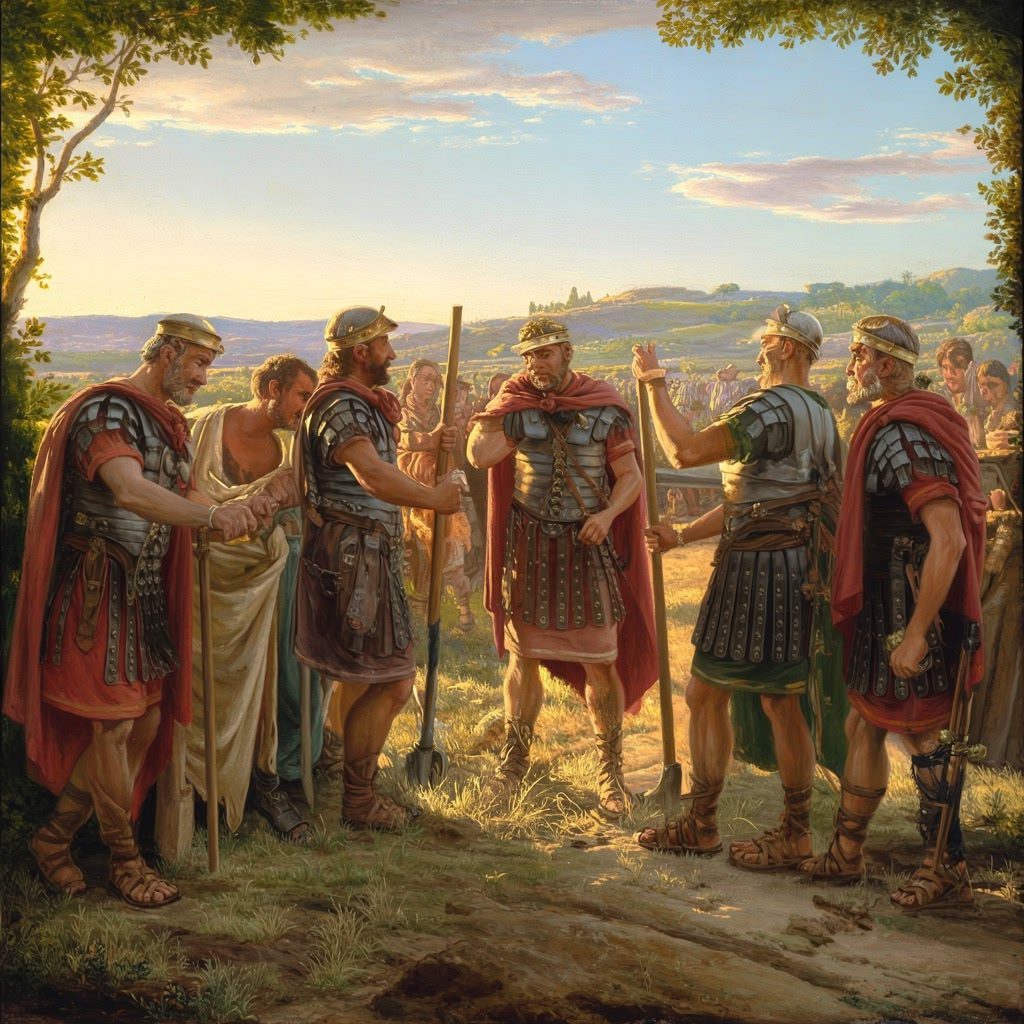
Integration of Soldiers into Civilian Roles
The transition from soldier to landowner was crucial in maintaining stability in Roman society. Veterans, given land grants and pensions, often became influential figures within their communities. Their military experience translated into leadership skills valuable for managing estates and local affairs. As landowners, these former soldiers contributed to agricultural productivity and served as a stabilizing rural presence, deterring unrest and fostering loyalty to Rome.
Veterans frequently took on roles such as local magistrates or municipal officials, combining military discipline with civic duty. This integration helped maintain order in both newly conquered areas and established provinces. The presence of veteran colonies spread Roman culture and governance, reinforcing imperial control far from the capital.
Financial pressures significantly impacted retirement policies:
- For individual veterans: Sustaining livelihoods required dependable income sources beyond initial pensions. Land ownership provided long-term security but could be challenging without sufficient resources or favorable conditions.
- For the state: Funding pensions and land distributions demanded substantial resources. Economic strains, especially during prolonged conflicts or political instability, led to adjustments in service length requirements and pension amounts.
Roman authorities balanced generosity with fiscal realities by modifying benefits over time, aiming to keep veterans satisfied while safeguarding public finances. This delicate balance influenced the evolution of retirement systems throughout the empire’s history, much like the modern approaches to integrating military personnel into civilian roles which often include providing support for transitioning into civilian employment and ensuring financial stability post-service.
Conclusion
The retirement perks granted to Roman soldiers represented much more than simple financial rewards. These benefits served to honor service by formally recognizing the sacrifices and dedication of legionnaires. They helped secure loyalty to the empire, ensuring that veterans remained invested in Rome’s stability and success even after their active duty ended. By transforming soldiers into landowners and community leaders, these perks promoted social order across expanding territories, reinforcing Roman influence through a dependable veteran class.
The system underpinning these benefits was essential in maintaining a loyal, stable populace that supported Rome’s growth. The story From Legionnaire to Landowner: Retirement Perks for Roman Soldiers reveals how military service intertwined with social advancement, shaping the empire long after the battlefield.

